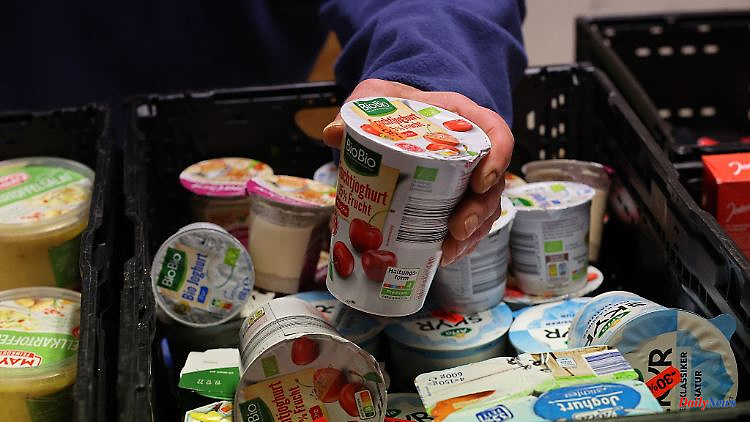As a result of the high inflation, many people were dependent on what the food banks offered this year. But the system - which relies solely on volunteers and donations - is not doing well itself.
Schwerin (dpa / mv) - Because of the consequences of the energy crisis, more and more people are going to the panels in the northeast. However, the system is already under enormous pressure. "We've noticed that not only people who are directly threatened by poverty come to our food banks, but also working people," said Kerstin Dauer, chairwoman of the food banks in Mecklenburg-Western Pomerania. These are mainly families with children, where the salary is no longer sufficient due to the increased prices.
The panels estimate that the number of people in need has increased by up to 40 percent compared to the previous year. One can currently assume 38,500 to 39,000 people in Mecklenburg-Western Pomerania who have to take advantage of the offer.
But the higher demand is not matched by a higher supply: neither for food nor for urgently needed helpers. According to Dauer, food has become scarcer because the supermarkets are selling less. According to her, this can have various reasons: better purchasing planning, more demand or own concepts for avoiding food waste.
The number of helpers remains a bottleneck. According to Dauer, many volunteers who had helped before the pandemic did not come back. It is hard work, but also nice and rewarding: "Nevertheless, people are tired of doing everything on a voluntary basis," says Dauer. There is a lack of recognition - also financial. For example, the head of the food bank could imagine that helpers use local transport at least free of charge. This would help above all in rural areas, because otherwise people would have to pay extra for their voluntary work.
In reality, the food banks don't feel that they are in need of politics. The state government must recognize the emergencies and take them seriously. According to Dauer, some issuing offices are already threatened with closure for economic reasons. The energy crisis is also hitting the Tafel financially with full force. According to the head of state, it would therefore help a lot if municipalities provided their own rooms once a week for expenses.
After all: In the supplementary budget for the year 2023, 2500 euros are planned for each of the 130 distribution points of the food banks in the state. "The boards have done a lot during the crisis for those who have it the hardest," commented Prime Minister Manuela Schwesig (SPD). According to the Ministry of Finance, the money should be paid out as soon as possible. In the long run, the money is a "huge help", but measured against the challenges it is the proverbial drop in the ocean.












